Warning: This post contains major spoilers for Beau is AfraidBeau is Afraid’s ending is one of the wildest and strangest finales of the year. Written and directed by Ari Aster, whose filmography has historically dealt with similar themes, Beau is Afraid follows the titular character (played by Joaquin Phoenix) on a journey towards awareness following the unexpected death of his mother Mona.
Beau is Afraid has received a mostly positive critical reception. At three hours long, the neurotic odyssey is Aster’s longest film to date. The film ends with Beau strangling Mona after learning she faked her own death. Mona collapses, presumably dead for real, while Beau escapes to a boat, finally free of his life’s shackles, as well as the fear and anxiousness that dictated his life. But it isn’t long before he’s facing Mona (and her lawyer) once more, trapped within a watery amphitheater while listening to the sins he’s committed as a son. Beau’s boat eventually blows up, throwing him into the watery depths where he struggles to rise up but seemingly drowns.
Why Mona Faked Her Own Death
The Shocking Beau Is Afraid Twist Explained
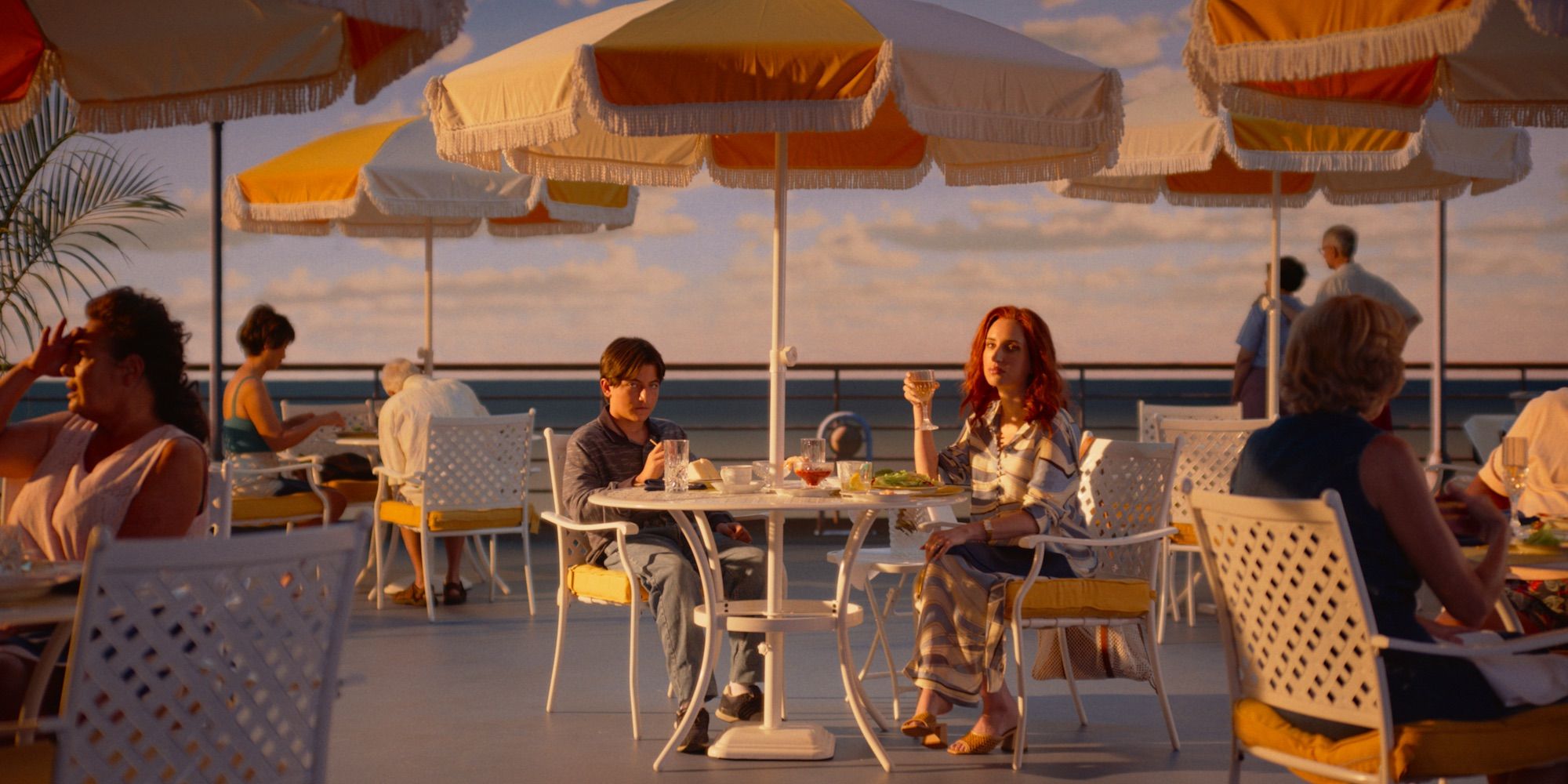
Beau is told early on that his mom, Mona, died after a chandelier fell and cut off her head, but it’s revealed before the end of Beau Is Afrai that she faked her own death. Mona felt rejected after “squeezing” out all her love to give to Beau, who she felt was ungrateful after all that she’d given him, and he couldn’t bother to come visit her. To Patti LuPone's Mona, Beau was an endless well of disappointment who was always asking her what he should do — out of fear of doing the wrong thing. Mona alleges she did everything in her power to raise Beau, giving him everything that her mother never did for her.
Mona wanted to see if Beau would come to her funeral, which would solidify her sense of rejection and indicate a lack of love for her on Beau’s part. Mona worked in extremes, and she expected Beau to give her unconditional love for simply being his mother. Faking her own death was the ultimate test for Beau as a son — at least in Mona’s eyes. Not getting there in time for her funeral confirmed to Mona that he didn’t care about her in the way she wanted. He didn’t put her first despite her being gone. Mona’s “death” was a trap, and Beau reaffirmed the neglect his mother already felt, regardless of his actions.
What Was Real In Beau Is Afraid
Was It All Happening In Beau’s Mind?
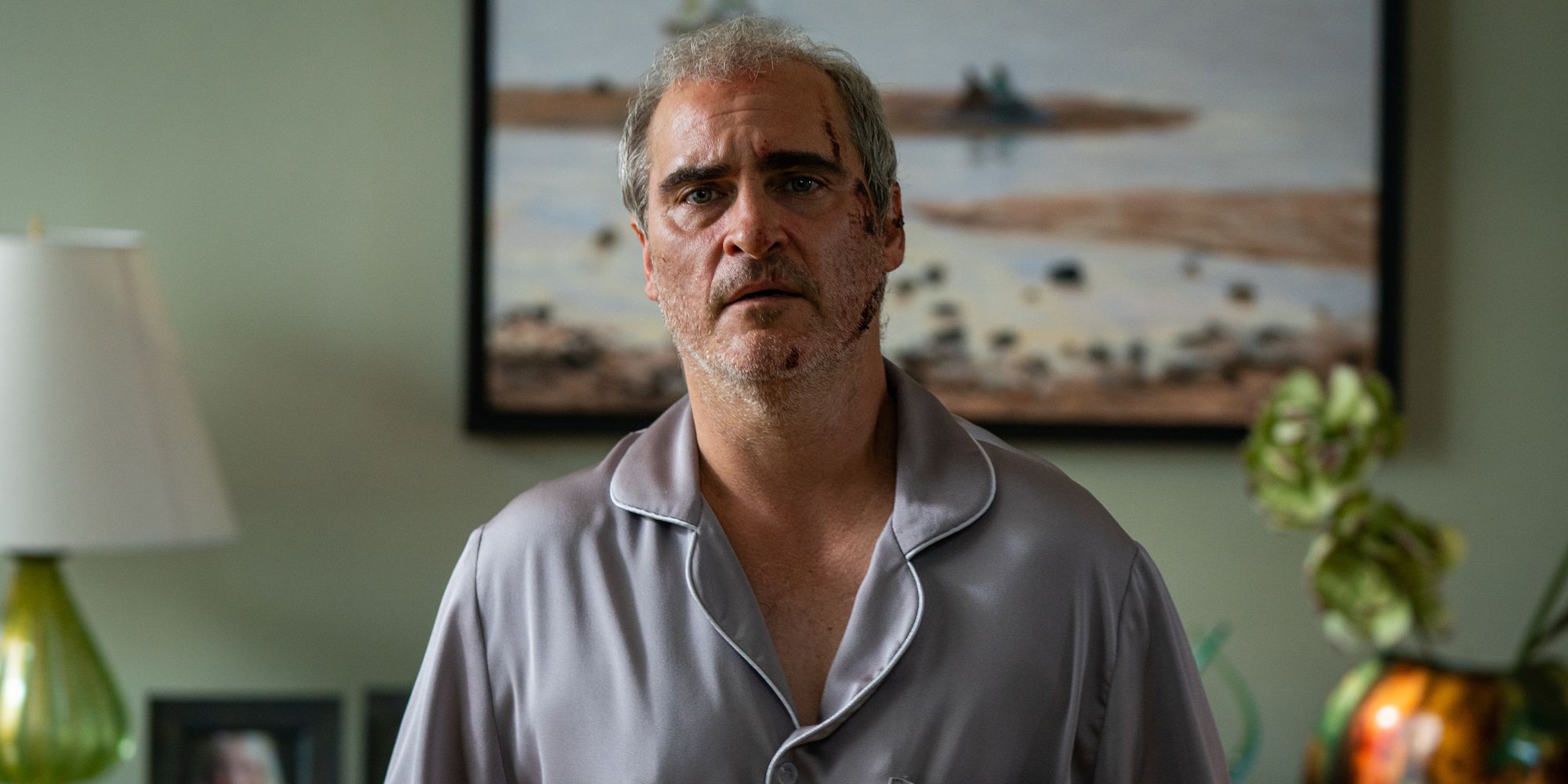
There are many aspects of Beau is Afraid that make viewers question what’s real and what isn’t. What becomes clear by the end of Beau is Afraid is how deep Beau’s fear and anxiety truly goes. Other characters record him throughout the film, and he never feels safe — often to an exaggerated degree. Beau is Afraid suggests that most things are indeed happening in Beau’s mind. People recording him play into Beau’s sense of being watched by his mother at all times.
From fearing his own neighborhood, which itself is an extreme version of how Mona might perceive city life, and being trapped by Grace and Roger’s family speaks to Beau feeling suffocated and smothered by his mother’s expectations. It’s possible that Beau’s journey was a manifestation of his own feelings coming to life, a slice of his perceived reality, and not what was happening objectively.
When viewing the events of Beau is Afraid from the titular character’s perspective, certain events — such as his mother faking her own death — can be construed as objective reality. Considering what was revealed throughout the film about Mona especially, it’s easy to believe she would go to such lengths to test Beau’s love. However, the film itself is executed in a way that suggests a disconnection from reality. Within the film's context, much of Beau is Afraid could be the result of Beau's heightened emotions.
Beau’s Father Explained
What The Creature Represents
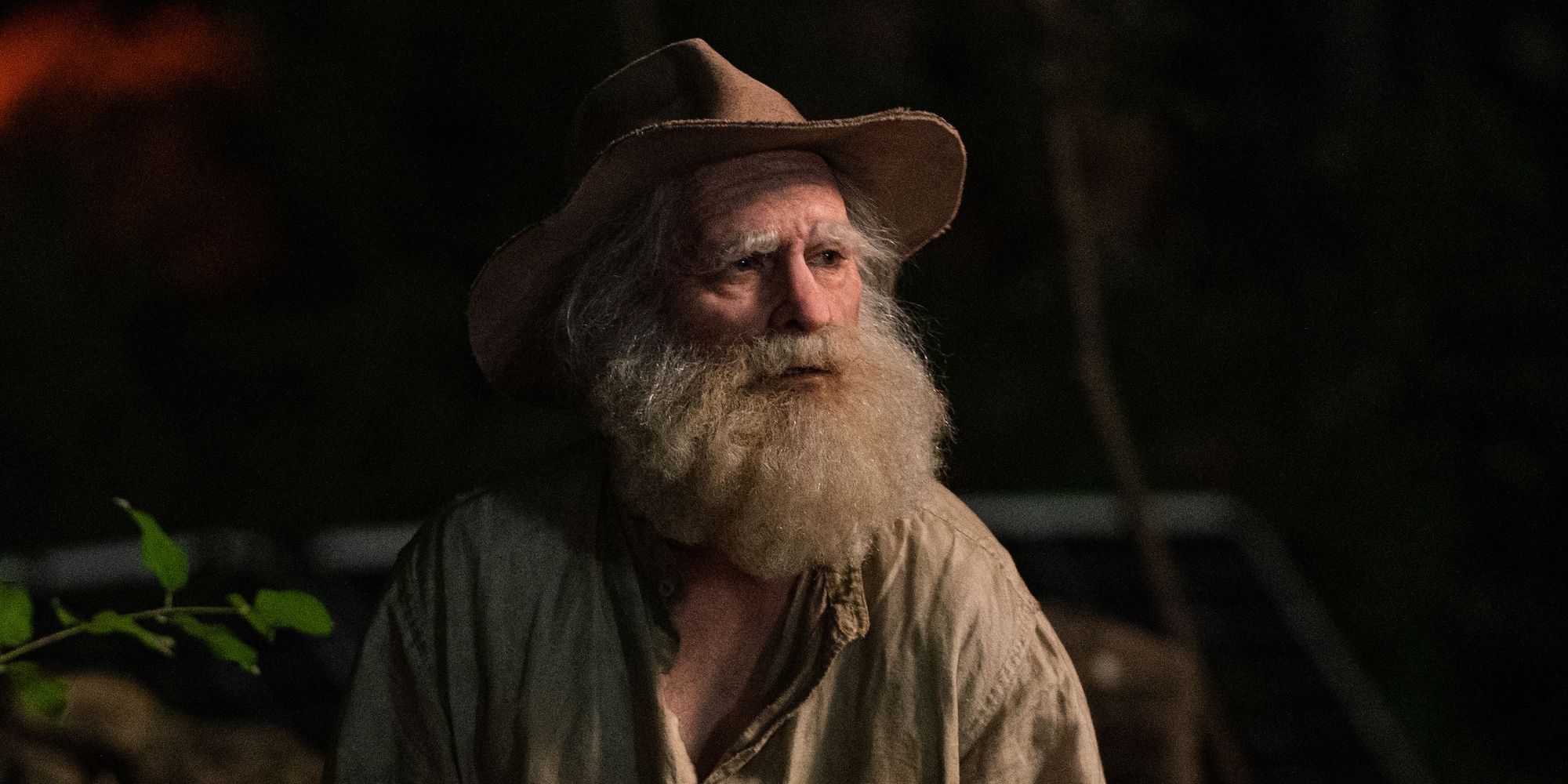
Mona tells Beau that his father had a heart murmur and died on the night of his conception. When he goes to the attic, Beau sees an underfed man before he’s replaced with a penis-shaped creature. Since it’s unclear if it’s real, the creature could represent Beau’s own sense of manhood.
Beau is afraid to have sex because he thinks he might die like his dad did, so the idea that his genital organ would be a terrifying creature says a lot about how he views himself. It could be that his father did die, and he created this monstrous form to deal with his father’s absence and its effects on his psyche.
What Beau’s Dream Odyssey Really Means
The Symbolic Moment Captures Beau's Anxieties
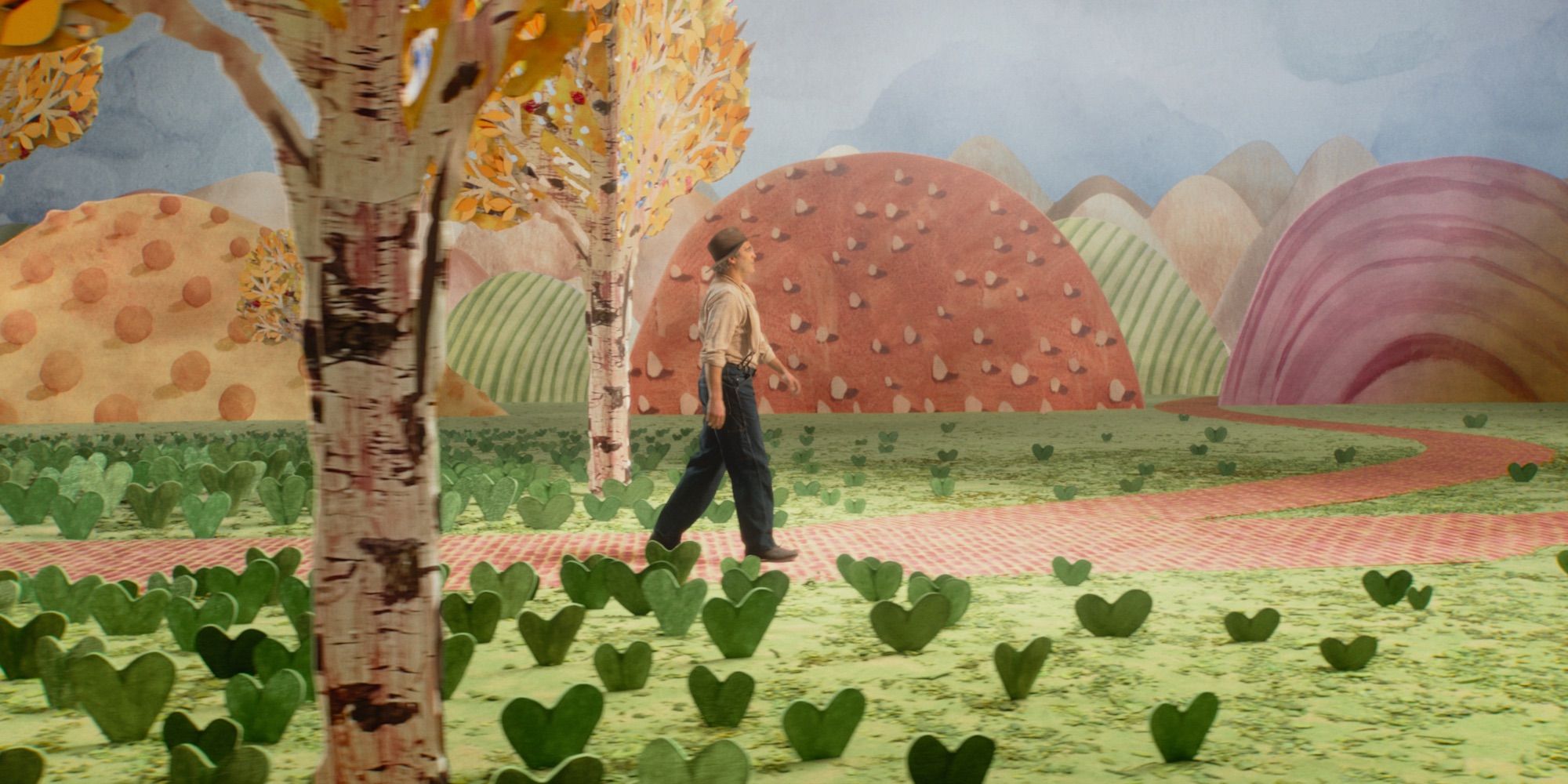
In the second half of Beau is Afraid, Beau is watching a play about a young man who is being restrained in life. Beau then begins to imagine himself on this journey, walking into the unknown and carving out his own path in life. In this dream story, Beau has a life — a wife and three sons — that he ultimately loses before wandering out on his own for years. While he is eventually reunited with his sons in the dream, Beau is accused of being so selfish that it was hard to find him. Much of this dream sequence indicates Beau’s own repressed desires for such a life. His own fears prevented him from having a family.
But the imagined events also point to the fears of Beau being an absent father like his own dad, though through no fault of his own. Beau’s odyssey dream also speaks to the idea of being lost, searching for something he can’t find, and being weighed down by his own guilt and the terror of moving forward. Beau goes through the motions and ultimately retreats into his own mind rather than facing the reality of his life and what he could do about it. Beau’s imagined journey is riddled with obstacles, but it suggests that he — and not simply his mother — is also standing in the way of his own happiness.
Does Beau Really Die At The End?
The Scene Is Metaphorically Ambiguous
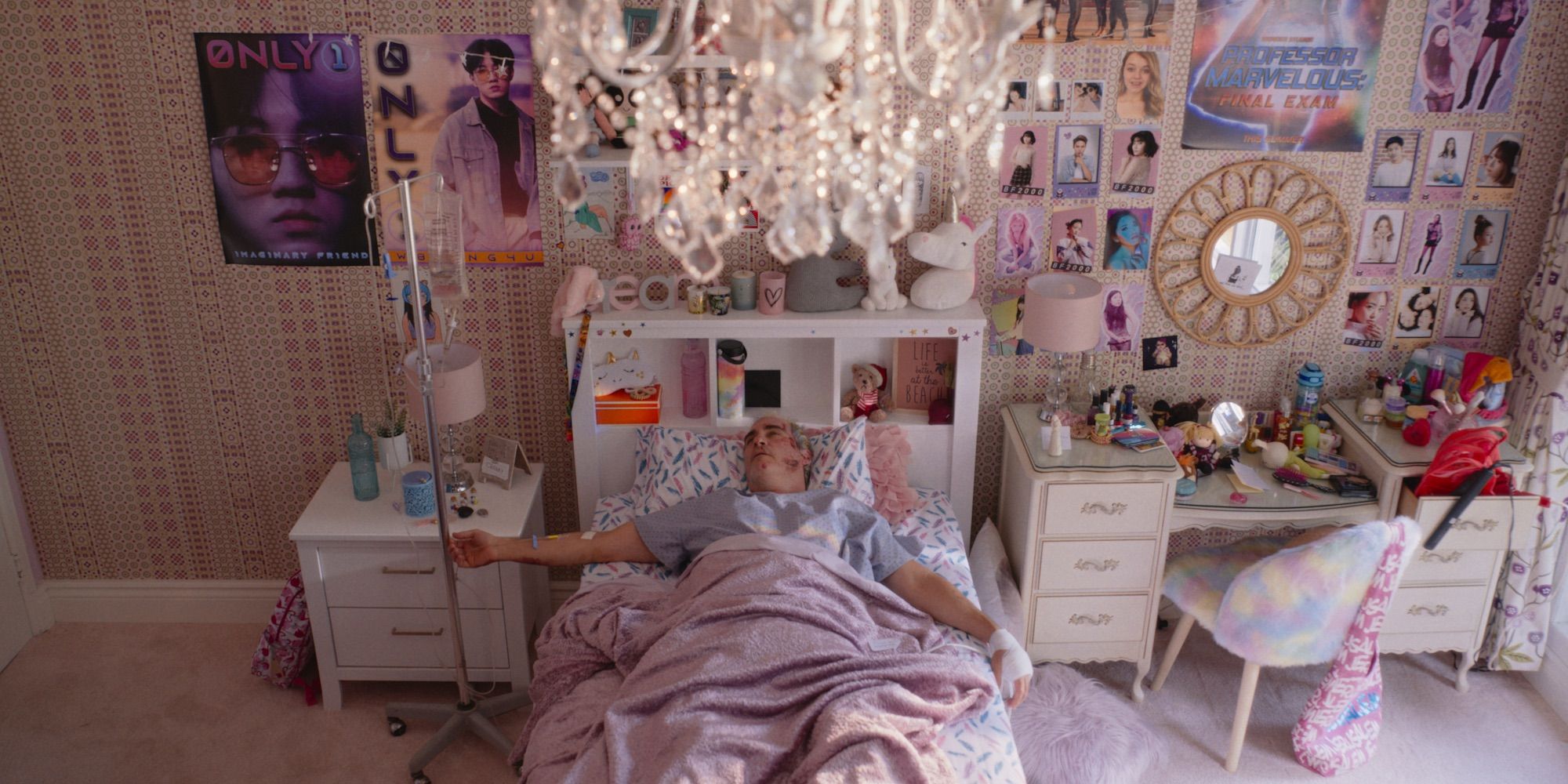
After strangling his mother at the end of Beau is Afraid, Beau believes himself to be free, so he takes a boat out onto the water and sits there for a long time, content. But he’s trapped again inside an amphitheater with his mother, who has returned to the living (or never really died, depending on how one might see it), her lawyer, and hundreds of onlookers. The lawyer goes through a list of transgressions and Beau can’t properly defend himself. Overwhelmed by the stress of it all, the boat explodes — as Beau’s own feelings come to a head — and he falls into the water.
Beau’s heard gurgling before everything goes silent, presumably dying. This sequence can be interpreted as Beau being fully swallowed up by his mother after a brief moment of freedom, paralleling the film’s first scene of Beau being born. Whereas he emerged from the womb to live his own life, Beau’s water death is the culmination of a life metaphorically surrounded by water, with no way out.
In a sense, Beau has retreated back to the womb, enveloped fully by his mother’s “love,” unable to have his own life apart from her. Beau’s essence has basically died, and his own fears and anxieties have claimed him, preventing him from breaking away from what holds him back.
Why Elaine Died Instead Of Beau?
Mona May Have Been Right
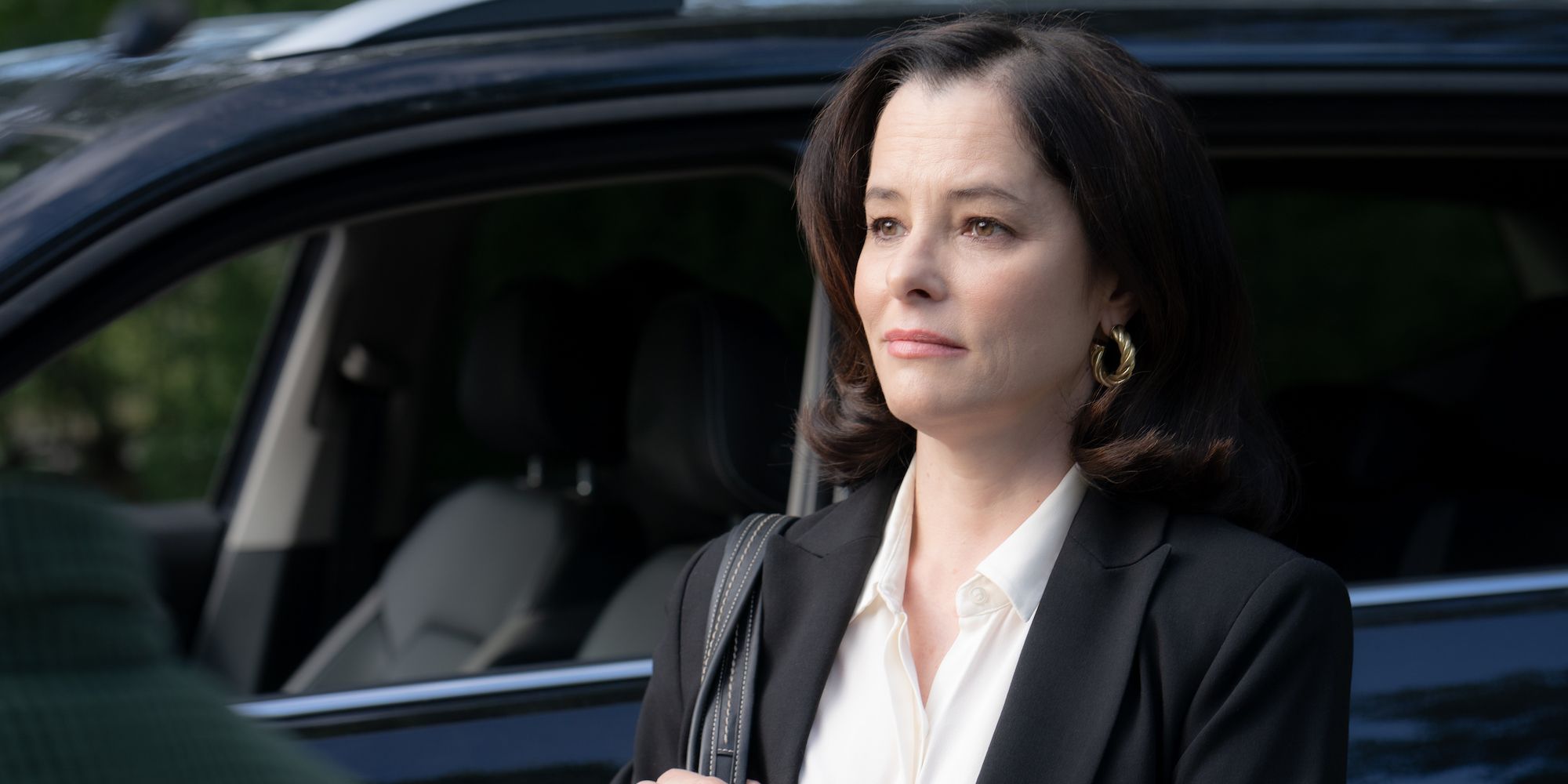
Beau is afraid to have sex because that’s how his father died. However, Beau managed to survive sex with Elaine, who died instead. It’s possible Elaine died as a direct connection to Beau’s own fear that sex kills. Crucially, sex with him can kill, signaling that Mona may have been right all along.
Beau could be projecting his fear onto the situation, to the point that it becomes a self-fulfilling prophecy. He’s so afraid and anxious about his manhood that it might have been transferred. His fears manifested into reality, his orgasm killing Elaine right before the moment Mona is confirmed alive, mirroring Mona’s own experience with Beau’s father.
What Beau Is Afraid’s Ending Really Means
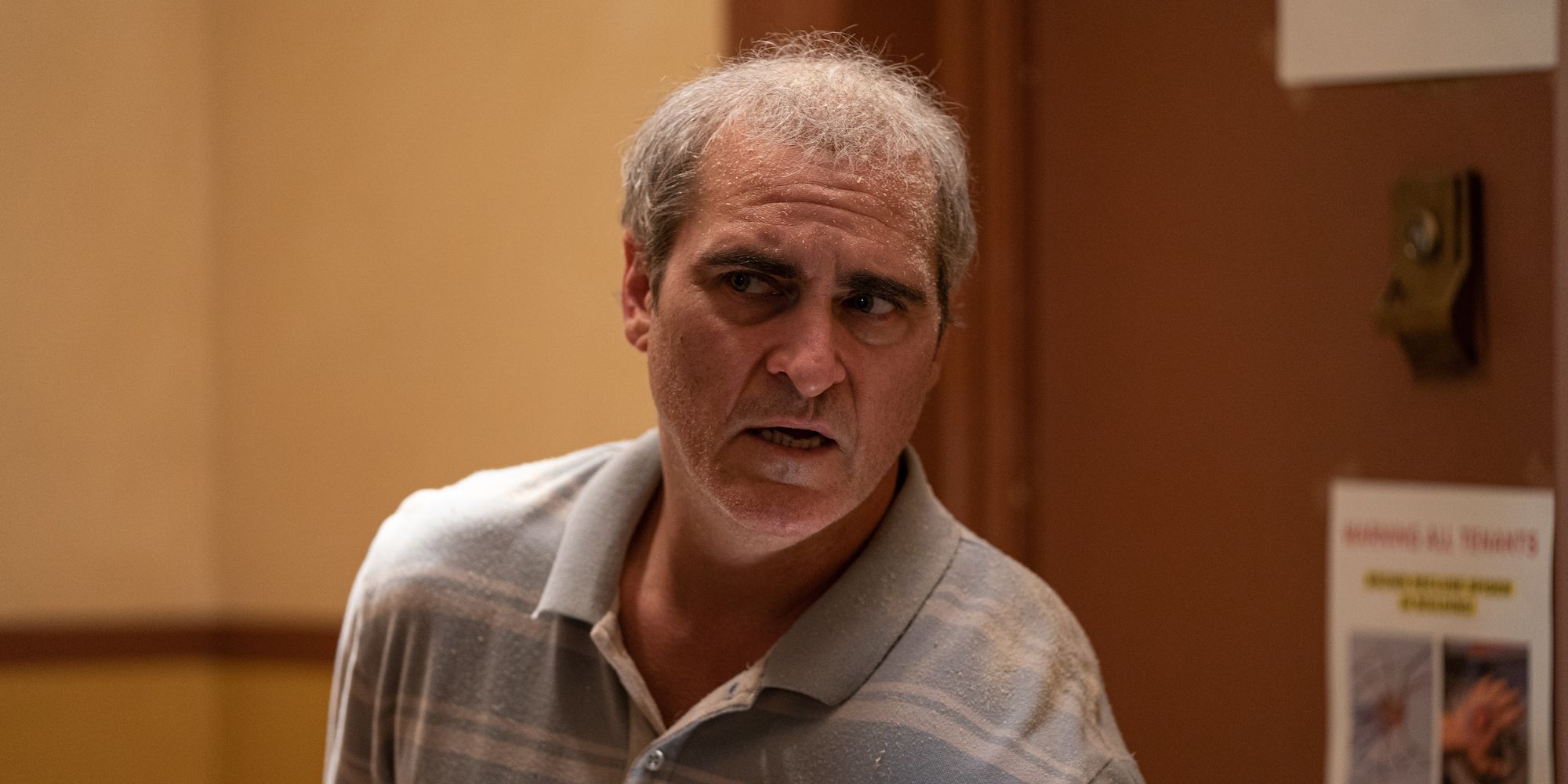
Beau is Afraid is about the stifling life one can lead when saddled with so much fear, anxiety, and paranoia. With the relationship between Beau and his mother being so instrumental to the story, Beau is Afraid showcases how a toxic parent/child relationship can be detrimental to one’s own development.
Aster suggests that having such an overbearing parent, one whose behaviors indicate that nothing can meet her impossible standards, is paralyzing. The expectation that unconditional love should be given regardless of poor treatment is at the center of the film, which also posits the all-consuming fear of repercussions and guilt, and how one can be affected by one’s own inaction due to these feelings.
How The Beau Is Afraid Ending Was Received
The Final Moments Were Divisive
While Beau is Afraid was divisive (as evidenced by its 68% Tomatometer score on Rotten Tomatoes), the 2023 Ari Aster movie wasn't without its supporters. In particular the performance of Joaquin Phoenix was celebrated, and earned the actor a Golden Globe nomination. However, it was also an inarguably box office flop, earning only $12.3 million globally against a budget of $35 million (via Box Office Mojo). The ending of Beau is Afraid doesn't seem to have fed the divisiveness, though it also is a product of the movie's strange tone - and it's here that opinions were split.
Beau is Afraid is a surreal movie, and strange films like it often split opinions. In the case of Beau is Afraid, the pace and ambiguity wasn't to everyone's tastes. Writing for The Guardian, critic Mark Kermode explained that some aspects of Beau is Afraid make it an endurance test for some viewers:
"I think Beau Is Afraid is best described as an amusingly patience-testing shaggy dog story that asks: “What if your mother could hear all those unspeakable things you tell your therapist?” Parts of it are hilarious. Other sections sag. Some will find it insufferable."
Kermode did mention one scene from the ending of Beau is Afraid that he parcitularly enjoyed, highlighting how it showcased one of the film's strong points - its sense of humor:
"The penultimate funereal farce, about which I have been laughing out loud for weeks, it combines the body horror of David Cronenberg’s Shivers with the cock-and-ball sensibility of an adolescent mummy’s boy enthusiastically scrawling graffiti on a toilet wall at school."
There were some critics with positive takes on the film that singled out the ending of Beau is Afraid as a key strength too. Those with this view tended to be those responses that enjoyed the strange and chaotic pacing of the movie the most. Writing for Roger Ebert, critic Nick Allen described the end of Beau is Afraid with clear passion for many aspects of it:
The film's third act, its specific events not spoiled here, has "Beau Is Afraid" taking its full form as an exploitation film adapted from a therapist's notepad. It's full-on Grand Guignol emotional and psychological trauma, with moments of terror, jaw-dropping cartoonish absurdity, and an uneasy blend of past and present accompanied by a perfectly chosen Mariah Carey song. Aster packs in more characters, revelations, and more explosions of the psychological variety.
However, even in this positive review of Beau is Afraid, there's a divisive response. For all that Allen and other critics who share his point of view enjoyed many aspects of the ending, he was quick to point out that it was an incredibly risky way to finish the movie, and may not have worked for Ari Aster as well as it could have:
"For all of the power within this feverish work, including its fire-and-brimstone performances, it creates a weariness that does not work in Aster's favor. The sequence is admirable visually–its disquieting modern architecture setting looms over its characters, and there are laugh-out-loud inserted images to level the tone. But like the intense strings of Bobby Krlic's score, its pressing atonal nature at such a high volume becomes numbing; so too does the centerpiece dialogue that makes for an Oedipal screed and the twists that verge on self-parody. In its grand statement, "Beau Is Afraid" risks canceling out its intricate but chaotic arrangement into a simple scream."
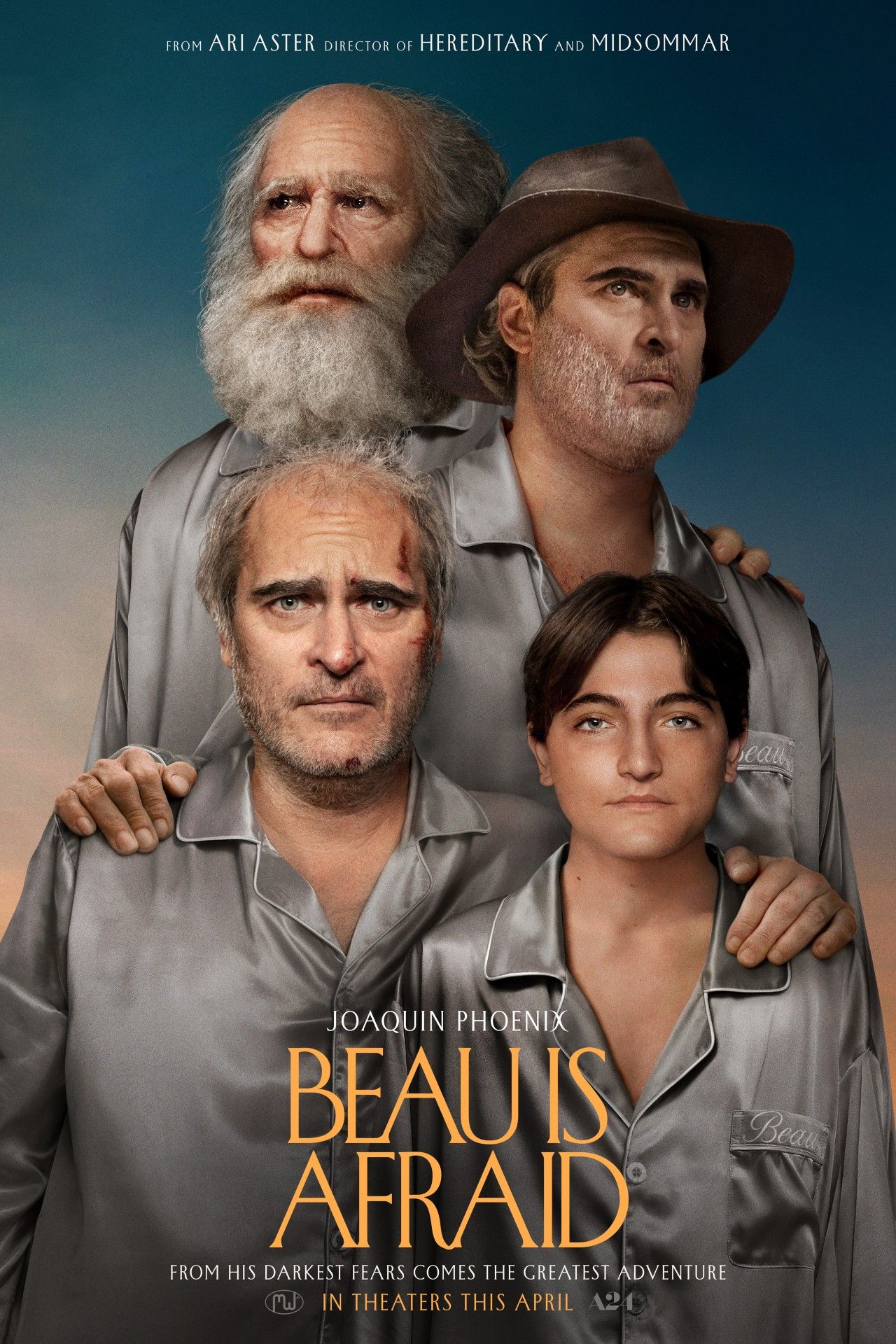
Beau Is Afraid (formerly known as Disappointment Blvd.) is a new supernatural horror/comedy film from Ari Aster (Hereditary, Midsommar.) Joaquin Phoenix stars as the titular Beau in his older years, as a young man with a strained relationship with his mother. After her death, his return home is marked by strange supernatural occurrences.
Release Date April 21, 2023
Runtime 179 minutes
Distributor(s) A24

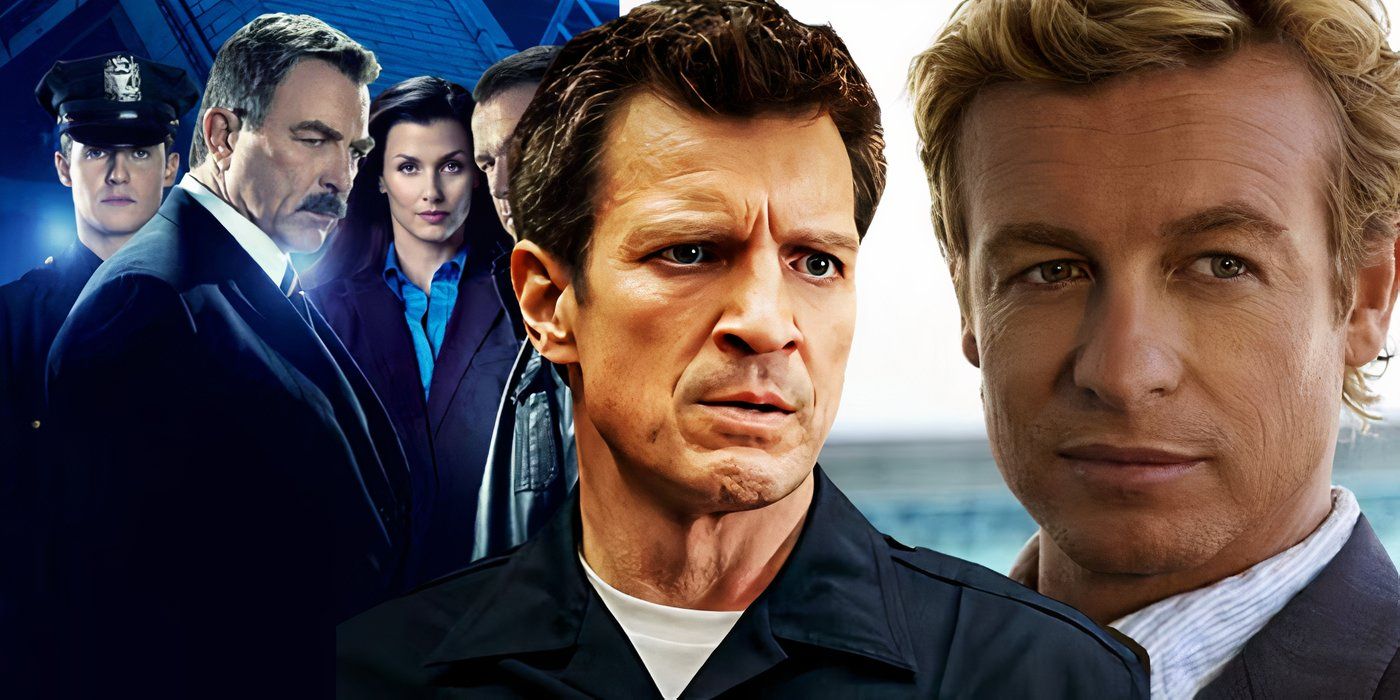
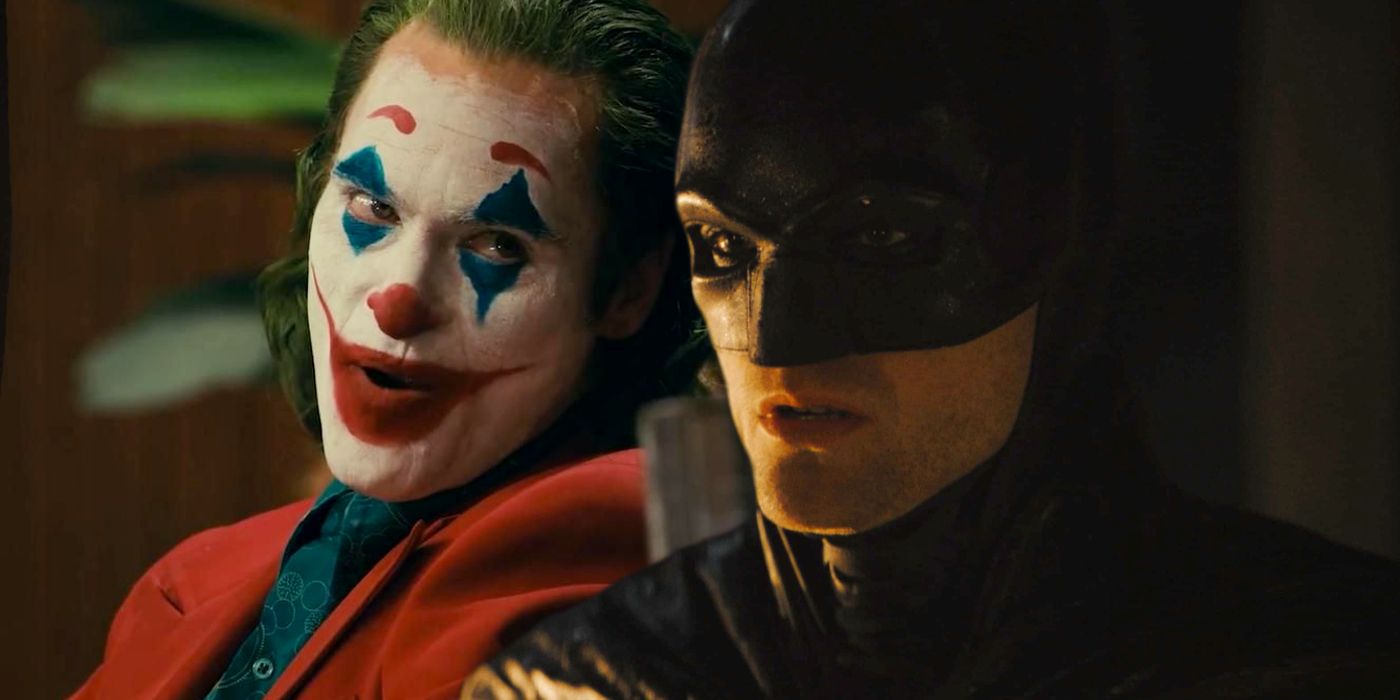






 English (US) ·
English (US) ·